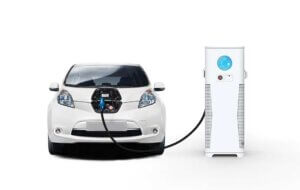Electric vehicles (EV) are gaining traction in the automobile industry right now—they save on fuel, are environmentally friendly and require less maintenance. These cars can also be a boon for the hospitality industry, presenting hoteliers with a host of opportunities.
For EV charging specifically, hotels are the ideal stop point—travelers can refuel their vehicles and themselves. Not only are hotels in key areas, but they also have existing infrastructure to house EV charging stations, which can save on installation costs.
“Hotels are regularly located in consumer-convenient areas, such as right off the freeway, and usually have larger parking lots with a robust electrical infrastructure already built,” said Aatish Patel, head of operations, XCharge North America, a high-power intelligent charging solutions provider developing UL-compliant EV charging products specifically designed for the North American electrical grid.
These charging stations can give hotels an additional revenue stream, among other benefits, attracting locals to take advantage of the on-site amenities while they charge.
“Increasing EV charging accessibility is necessary for a developing smart city, especially metro regions looking to increase public sustainability,” Patel said. “This will also eventually present an additional revenue stream for hotels, which will receive passive income from the use of stations. Hotels that deploy direct-current fast charging (DCFC) can see a financial return on investment approximately four years following deployment. This opportunity helps address ‘range anxiety,’ a major hurdle in increasing EV adoption.”
Range anxiety, Patel said, refers to the anxiety drivers have due to the lack of public charging access as most drivers rely on home charging. Through increased charging installations, however, range anxiety diminishes.
As for additional revenue streams, EV chargers can draw in more customers to experience a hotel’s food and beverage options and retail outlets while they wait for their cars to charge.
“Furthermore, the availability of EV charging stations presents an opportunity for local travel providers—like Ubers and Lyfts—who can utilize these locations to charge vehicles while being near a traveler-friendly location,” Patel said. “This would unlock new revenue potential that isn’t as reliant on having a ‘guest’ to maximize the hotel’s offering. Ultimately, this elevates a hotel into an experience for the community, rather than just a place for guests to turn in for the night.”
EV charging solutions are also real-estate plays for hoteliers, Patel said, increasing property value and providing another financial resource.
“To fully take advantage of this opportunity though, hotels must first ensure they have the proper electrical infrastructure to install chargers, particularly 208V stations as these stations are easy to install and are cost-efficient,” he said. “To maximize deployment success, hotels should prioritize EV partners with vertical integration solutions that offer direct implementation and management for an easy operating experience, both for location management and customers. Further, these partners should offer accessible pricing and payment, including financing.”
Hoteliers should spend time investing in the correct hardware, particularly EV charging solutions built intentionally for the North American grid, he added.
“Leveraging a charging solution with 208v inputs is going to be most successful for hotel and commercial spaces in the U.S.,” Patel advised. “Often, these spaces already have the infrastructure to deploy a 208V solution, which make installations and deployment much more streamlined and cost-effective. Further, successful EV stations will be equipped with software integrations and smart screens that provide customers with the ability to have a point-of-sale software integrated seamlessly into the system for easy payment options.”
For hoteliers who are curious about EV charging stations, Patel said that they should ensure their hotel location has the electrical capacity to install DC fast-charging stations.
“Currently, the main issue most locations face is needing to make enhancements to their current electric structure so that there’s enough power availability to make this addition without affecting daily operations,” Patel said. “Creating a financial plan that budgets these expenses is going to be the most successful first step to implementing charging solutions. From there, determining a workback timeline for station selection to installation is necessary to create a realistic ROI time frame for business reference.”
Patel added that there are numerous existing successful EV charging station implementations in hotels nationally, including in key metro cities such as Chicago and Miami, with many more opportunities on the horizon.
“Introducing charging stations in consumer-friendly locations is a dominating focus in the EV industry to increase accessibility that mirrors the increased demand for EVs,” he said. “Deploying chargers in environments that people naturally gravitate towards such as coffee shops, malls, etc., will further address range anxiety.”



